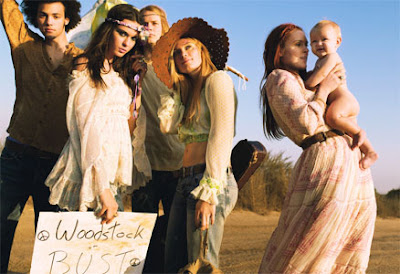There's this incredibly annoying McDonald's McCafe advertisement that I've been seeing lately, but I can't find a video of it anywhere to showcase its sheer stupidity. I also haven't been able to catch it on tape yet, but if any of you either have it in a digital format or have seen it floating around online somewhere, I will be very grateful for a copy or a link.
That said, the commercial goes something like this: two young women drinking McDonald's coffees--one hot, one iced and covered in whip cream--talk whilst walking a park, amidst boisterous giggles, about everything from the unwanted gift of a puppy to boyfriend trouble. Stereotypical "girl talk." And they giggle
constantly. And, there's a twist! As the commercial nears its end, a voice-over extols the virtues of McDonald's McCafe to bring people together and let you have a break from real life and the two women smile and hug as they part. Then, the blond woman turns towards her companion and asks something along the lines of "Wait, I didn't catch your name?" They introduce themselves to each other, amidst more giggling, and the voice-over says something revealing that amounts to "McCafe helps you connect with friends, even new ones."
Obviously, I can't remember the commercial word-for-word, but it's the most grating commercial I've seen in a long time. The incessant giggling makes me want to change the channel. The implication that something as simple as bonding over your
McDonald's coffee can cause two women who are complete strangers to giddily reveal all their secrets to one another? What's up with that? Not to mention that the commercial makes the two women look like completely airheads. Argh!
Has anyone else seen this ad?

















